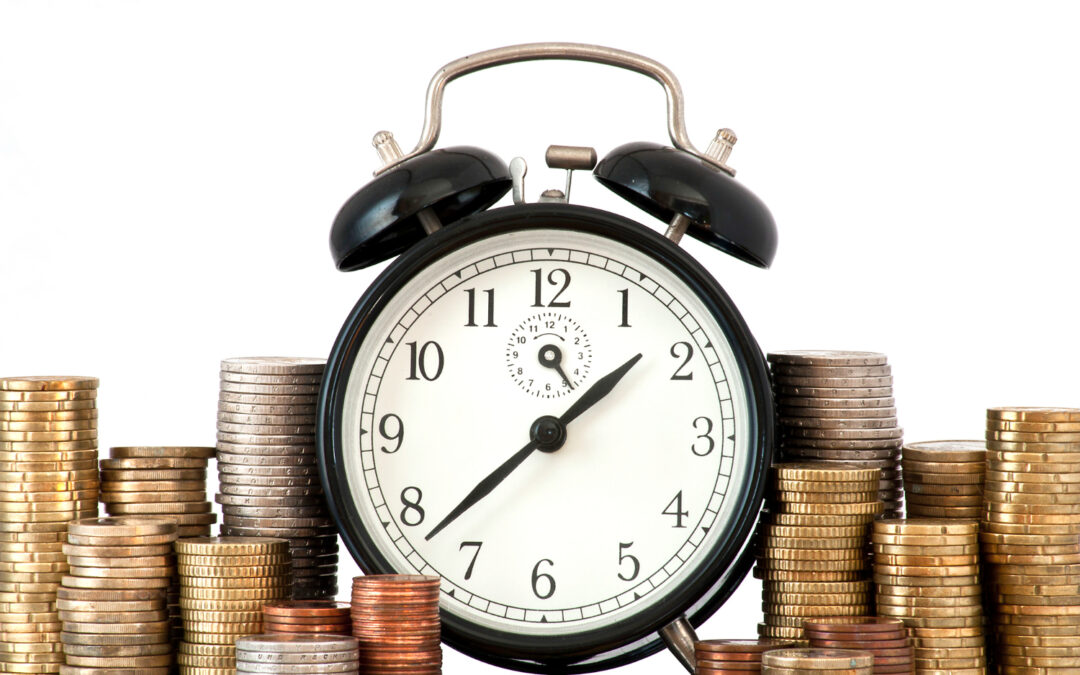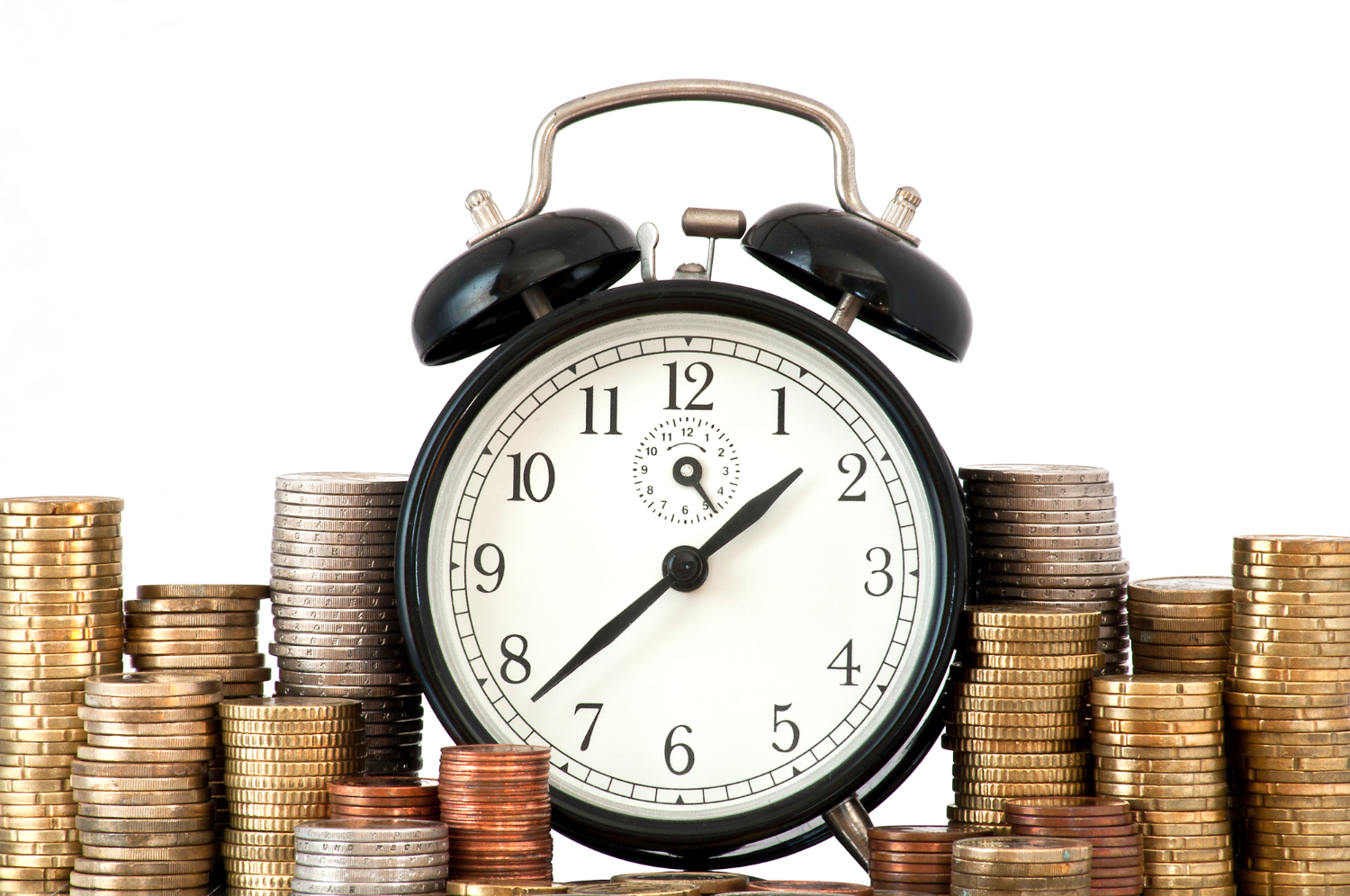Can You Buy Time Without Paying For It?
Can you truly buy time without paying for it? Think about it. You’re compelled to spend money every time you step out the door. Whether it’s as mundane as chauffeuring your grandson to football practice, dropping off a package at the post office, or buying groceries, it all adds up. Sure, you may argue that you’re using the money you’ve already spent, but the fact remains: you still had to spend money to go out.
For a long time, many hacks have been used to escape this eternal transaction of money. The first step is to recognize that this is happening to you. The next step is to do something advantageous about it.
How do you go about escaping the eternal transaction of money for time?
Everyone’s first thought is to go out and make more money. Well, you do make more money, but at what cost?
Pursuing more money often comes with trade-offs that aren’t immediately apparent. The time, energy, and resources spent to increase income can sometimes outweigh the benefits if not managed wisely. It’s like the analogy of a boat with holes; you can keep bailing water out (making more money), but you’re still at risk of sinking unless you plug the holes (address underlying issues).
It’s crucial to have a solid foundation before scaling up. This might mean reducing unnecessary expenses, improving efficiency, investing in education or skills, or addressing other “holes” in your financial situation. Otherwise, increasing income might lead to increasing waste.
Unnecessary expenses incur but are not essential for your survival or well-being. They usually involve discretionary spending, which can be reduced or eliminated without drastically affecting your quality of life. Here are some examples:
- Eating Out Frequently: While eating out is occasionally enjoyable, doing so frequently can lead to high costs. Cooking at home can be a healthier and more budget-friendly alternative.
- Expensive Cable Packages: With the advent of streaming services like Netflix, Hulu, and Disney+, expensive cable packages have become less necessary for many people.
- Unused Subscriptions: Gym memberships, magazine subscriptions, or online services you don’t regularly use can consume your budget.
- Impulse Purchases: Buying items on a whim, especially if not needed, can lead to unnecessary spending.
- High-End Designer Brands: While quality is important, opting for high-end designer brands with affordable alternatives of comparable quality can lead to unnecessary expenses.
- Excessive or Luxury Vacations: Traveling is great for relaxation and experiencing new cultures, but luxury vacations or frequent trips can significantly drain finances.
Remember, what’s considered ‘unnecessary’ can vary greatly from person to person, depending on their income, lifestyle, and personal values. It’s always important to assess your needs and wants when determining what expenses may be unnecessary.
Additionally, it’s important to consider the quality of life and personal fulfillment. Money is important but only one aspect of a fulfilling life. Time spent on relationships, hobbies, health, and personal growth also have immense value.
Also, taxes are a factor that can significantly reduce the net benefit of earning more. Understanding tax implications and taking advantage of legal strategies for minimizing tax liability is crucial.
In summary, while making more money can be beneficial, it’s equally (if not more) important to address underlying issues, manage money wisely, and maintain a balanced, fulfilling life.
Yeah, I Have a Credit Card!
Now, as an adult, credit cards secretly trap you in this never-ending cycle of carrying a balance on your credit card and paying interest.
Credit cards can indeed become a trap if not used responsibly. They offer the convenience of purchasing items immediately, even when you don’t have the funds available. However, this convenience comes at a cost.
The cycle begins when you start carrying a balance on your credit card. The credit card company charges interest on the amount you owe, which compounds over time. If you only make the minimum payment each month, most of your payment goes towards the interest, and only a small portion goes towards paying off your actual debt.
This means your debt can keep growing, even if you stop using the credit card. It’s a cycle that can be tough to break free from, especially if you continue to use the card for new purchases.
Breaking free from this cycle requires discipline and a plan. This might include budgeting to ensure you can pay off your balance in full each month, using a balance transfer card to reduce interest rates, or seeking advice from a financial counselor.
In summary, while credit cards can be a useful financial tool when used wisely, they can also lead to a cycle of debt if not managed responsibly. It’s important to understand the risks and use credit cards in a way that supports your overall financial health.
Credit cards are great, but they can perpetuate the process of negative monetary time bartering. Monetary time bartering is when you exchange money for time. Think of it as a virtual Faustian bargain: the more money you spend, the more time you think you save. You may be able to purchase convenience, but at what cost? As our lives grow increasingly hectic and busier, this concept becomes even more dangerous.
There are many types of bartering, but I wanted to focus on monetary time bartering because it’s taking me away from setting sail on my dreams. Everyone has dreams.
List of Other Bartering Systems
Explore, delve deep, or glance at them. They exist for the curious minds and those unaware there were so many!
- Monetary Bartering: It involves using money as a medium of exchange, allowing people to sell goods or services for currency and then use that currency to buy other goods or services. This system simplifies trade by creating a common measure of value and eliminating the need for a coincidence of wants (the situation where two people each have something the other wants), which is required in barter trade.
- Free Bartering: This is a concept in which individuals exchange their skills or services for someone else’s time and expertise instead of exchanging money.
- Informal Bartering: This is an unplanned form of bartering that occurs casually between friends, family, or neighbors. For example, one might trade a bag of apples from their tree for a homemade loaf of bread.
- Online Bartering: With the rise of the internet, online bartering has become more common. Websites and apps allow people to list items they have and need, making it easier to find bartering partners.
- Community Currency Bartering: Some communities develop their own currency to facilitate bartering, such as local exchange trading systems (LETS).
- Countertrade Bartering: This is a type of international trade in which goods are exchanged for other goods instead of cash. It’s common in international business transactions and is one way of bypassing currency exchange issues.
- Corporate Bartering: Large corporations sometimes engage in bartering, often through a third party that manages the exchange of surplus goods for needed items or services.
- Multilateral Bartering: This is a complex form of bartering involving more than two parties. This often requires a barter exchange or network to coordinate all the trades and ensure everyone gets what they need.
- Direct Bartering: This is the most traditional form of bartering, in which two parties trade goods or services directly without using a medium of exchange like money.
- Service Exchange Bartering: This is a type of bartering where individuals exchange services instead of goods. For example, a plumber could fix a carpenter’s pipes in exchange for a new table.
Discovering the Hole in My Pocket
Discovering how money is spent has always intrigued me, making me a devoted Quicken fan since its launch in 1983. Lately, my obsession has been designing the ultimate reports to maximize savings. I firmly believe that plugging the financial leaks and fixing the setbacks in our lives is crucial to setting sail on our dreams.
This is the path I went down.
While uncovering the power of customized Quicken financial data reports. The Credit Card Rewards Report stood out the most. It poignantly captured the first step of my financial journey, revealing the inflow of credit card rewards versus the outflow of interest charges. My credit card rewards fell short of my interest charges, monetary bartering at its worst. My credit card rewards barely made a dent in my interest charges.
Maximize credit card rewards. Zero balance credit card interest charges.
I dove into maximizing my credit card rewards and, at the same time, reducing the balance on offenders strategically. This would situate me into getting paid for using my credit cards instead of paying to use them. I used the premise of the snowball effect. The interest you earn on investments begins to earn its own interest. So, you get paid to use your credit cards instead of paying to use them.
Enter the concept of free time bartering.
Free time bartering is when you exchange services or goods instead of money to save time. Let’s put a little twist on this.
- Exchange money to maximize quality of life and at the same time get paid for it.
- Have free time to do what you want without paying extra for it.
- Have your quality of life not compromised by the debt you owe.
Maximizing credit card rewards and reducing interest charges to zero will hedge your spending. In other words, you get paid to use your credit cards instead of the reverse.
Let’s get started.
The first thing I did was to make a list of the different types of spending. There are several types of spending, each serving different purposes in personal finance:
Essential Spending: This is the money spent on necessities like rent or mortgage, utilities, groceries, healthcare, and transportation. These are the basic needs that you can’t live without.
Discretionary Spending: This is the money spent on non-essential items or activities that enhance your lifestyle, such as dining out, entertainment, vacations, and hobbies. These costs are optional and can be adjusted based on your financial situation.
Emergency Spending: This category covers unexpected expenses such as car repairs, medical emergencies, or sudden job loss. It’s usually recommended to have an emergency fund to cover these expenses without disrupting your regular budget.
Savings: This is the money you set aside for future use, such as retirement, a down payment on a house, or your child’s education. It’s generally recommended to save at least 10-20% of your income.
Investment Spending: This is money you invest with the expectation that it will grow over time, either through interest, dividends, or capital gains. This could include stocks, bonds, mutual funds, real estate, or other investment vehicles.
Debt Repayment: This is the money you spend to pay off debts, such as student loans, credit card debt, car loans, or mortgages. The faster you pay off your debts, the less interest you’ll pay over time.
It’s important to balance these types of spending in your budget to ensure financial health and stability.
Separate Buckets
I started by separating Essential and Discretionary Spending into separate buckets, using separate credit cards. This way, I could isolate my essential and discretionary spending activities. You may have many credit cards and may have to group them, but the principle is the same: separate buckets.
Essential Spending will baseline, and you’ll have more control. Your goal is to get this credit card to pay you for using it. It’s low-hanging fruit, and you’ll feel a sense of accomplishment. It will fortify your ambition to continue to plug the holes (address underlying issues) that put you at risk of sinking the boat.
Unlocking the key to mastering Discretionary Spending is a battle of wills, strategy, and careful planning. This will be a parallel focus and is equally important. It will take longer for this credit card to pay you for using it, but well worth the effort.
This process requires patience and discipline. It’s about being consistent and never wavering from your mission. Your mission is mastering the art of free time bartering. Everything you need to gain the upper hand in this battle is a plan to pay you for using your credit cards instead of paying them to use them. This will provide more control over your budget and discretionary spending activities.
In this journey, you must repeatedly remind yourself that you want to save more, invest more, pay down debt, and have a long-term plan. This will help keep you motivated to continue the mission until you reach financial freedom.
The goal here is not only about having the freedom to do what you want but also about having the financial security to live life with purpose and provide for your family. This mission is a journey of progress, not perfection. As long as you intend to improve with every step, success will soon follow!
Take action and get out of debt.
The road to financial freedom starts with taking action and getting out of debt. The goal is to increase your net worth by having more assets than liabilities.
I’ve only scratched the surface of what is possible.
Paying off debts is the most obvious hurdle to financial freedom. You can start with credit card balances and personal loans. Your goal is to pay these bills on time and in full each month, which will help you avoid late fees and high interest rates.
You can also try negotiating lower payments or interest rates with your creditors, as this may be a more manageable way to tackle debt. It’s also important to pay off debts with higher interest rates, such as credit cards, as these will cost you the most in the long run.
This article outlines a more tangible plan of action. A starting point to setting sail on your dreams.
Good luck and happy sailing!
Thank you for reading.
The writings on this website are purely for your enjoyment. They are not intended to persuade, convince, or manipulate you into believing anything. I aim to provide informative and entertaining content to spark your interest and encourage you to continue learning various topics. I hope I have succeeded.


Written by Drean Martin
More From This Category
No Results Found
The page you requested could not be found. Try refining your search, or use the navigation above to locate the post.



0 Comments